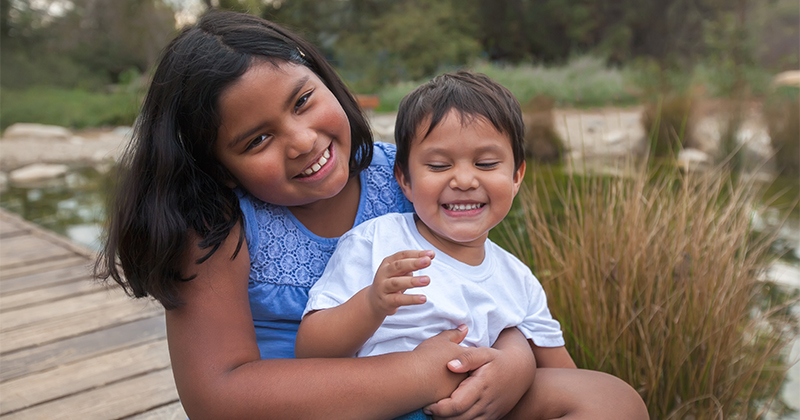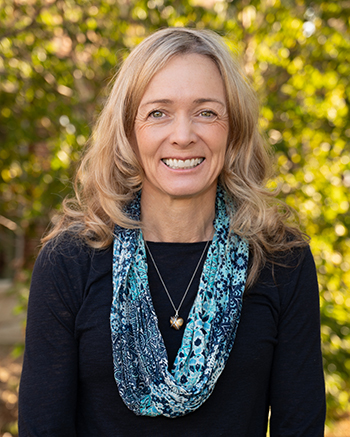Purdue HDFS researcher explores influence of sibling relationships on Latino youth
Written By: Rebecca Hoffa, rhoffa@purdue.edu

No matter how connected or distant they may be, siblings have a strong influence on a person’s life, from social development to identity formation. Kimberly Updegraff, professor in Purdue University’s Department of Human Development and Family Science, recognized the important role her own siblings played in her life, and beginning in graduate school, she took her first steps in trying to understand more about sibling relationships and how they can shape an individual.
“What we know about siblings is they often have very different experiences in family life, so despite sharing 50% of their genetics, siblings are often more different than similar,” Updegraff said. “I’ve always been intrigued by those dynamics in families.”

Kim Updegraff(Photo provided)
Updegraff is currently studying the effectiveness of a family-based prevention program centered around supporting sibling relationships in Latino families, particularly those from economically disadvantaged backgrounds. The study, which began when Updegraff was a professor at Arizona State University and has taken place over the past five years, invited children to participate in 12 afterschool sessions that focused on fostering positive social and emotional skills, such as expressing emotions with siblings, solving problems together and building positive constructive sibling experiences. The program also involved parents through participation in “family nights,” where parents learned how to support the skills the children were learning.
While findings from the study are being analyzed, Updegraff has seen positive outcomes thus far in program engagement and satisfaction. Updegraff noted this population often faces unique challenges and stressors, including discrimination, racism and anti-immigrant sentiments, so she is interested in how this programming can have a positive influence on families.
“We know these kinds of stressors can have negative implications on the families, and programming that can support the families who are experiencing those stressors and build on the strengths we know they have was the idea underlying some of the prevention research we’ve been doing over the last five years,” Updegraff said. “This has been a collaborative effort with my colleagues at Penn State, Susan McHale and Mark Feinberg, and the other principal investigator on the project, Adrianna Umaña-Taylor, at Harvard.”
Although Latino families often face distinct challenges in their everyday lives that affect their family dynamics, they tend to be underrepresented in family research, which often focuses on predominantly white populations. This is a fact that Updegraff is looking to change.
She is interested in understanding how Latino families’ norms and culture play a role in children’s development and family relationships. In doing so, Updegraff and a team of researchers conducted a longitudinal study that spanned across eight years and investigated the dynamics of Latino families and how they affected children.
“One thing that was important in Latine families was understanding the role of culture in their families, and a lot of my work has shown that their strong endorsement of familyism values has implications for both kids’ relationships and their well-being,” Updegraff said. “I think all of that work was setting the foundation for our family-based prevention work.”
Updegraff has also found that outside of school, siblings spend more time with each other than with anyone else in their lives — a factor that plays an important role in how siblings shape each other’s development.
“They were spending almost twice as much time with their sisters and brothers than with anyone else,” Updegraff said. “They were spending over 20 hours a week of their non-school hours with their sisters and brothers. This was more time than they spent with their moms, their dads, their extended family, their peers or alone, and I think what is often surprising to the small group of people who study siblings is how often (sibling relationships) are overlooked despite how salient they are in kids’ lives.”
Now in the College of Health and Human Sciences at Purdue, Updegraff plans to extend her research with Latino families to the greater rural United States, providing a stronger understanding of how the influence of siblings on Latino youth may change in rural contexts and what programming opportunities are available to support them.
“What has become really salient to me as I’ve done this work is that so little of the research testing the effectiveness of family-based prevention has focused on Latine families and particularly using designs that we know are the gold standards in the field,” Updegraff said. “I think we need to move in a direction of inclusiveness in terms of developing evidence-based solutions to address health disparities that Latine families face.”
Discover more from News | College of Health and Human Sciences
Subscribe to get the latest posts sent to your email.